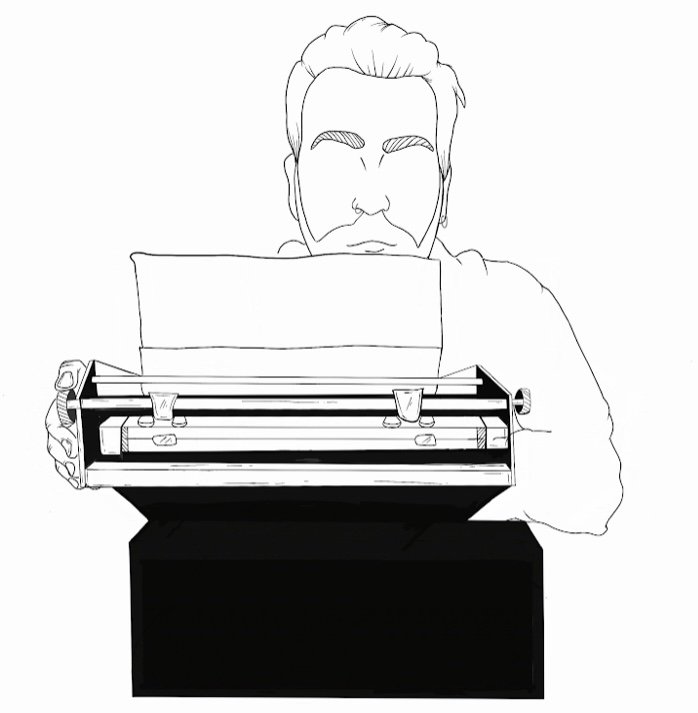Do We Care More for Acceptance Than Our Livelihood?
People rely heavily on social media and the digital world. This may not seem like much of a surprise for most of you as we already know this, based on videos which went viral on Facebook telling us to avoid Facebook. Logic.
Video Credit: Prince EA
However, I’m unsure we understand the extent to which we, as a human race are hooked into these utopian style apps specifically designed to keep you scrolling, tapping, digesting and unconsciously injecting corporate capitalism. Let me begin with some real-life examples first then I’ll discuss how we are hooked, and lastly Ill suggest some realistic solutions to these issues which isn’t nearly discussed as much as the issues.
I’m currently on a flight from Paris and I witnessed multiple people sitting on their phone without airplane mode turned on as we, well I say we, I mean a tin metal tube with over a hundred people and their luggage travelled at hundreds of miles an hour from ground to air in a miraculous feat of human accomplishment. Now you’d think if someone was risking the entire plane’s lives by using their phone without flight mode on, they’d have a good reason for doing this. Some sort of emergency. No, one was searching for a gif to send someone on Facebook and the other was snap chatting the take off. Now these two numbskulls represent the wider population to me. The fact that social media and connecting with others through a slab of glass was more important to those people than the safety of the plane. Another example I witnessed was while I was in Paris. I’m in the Louvre, witnessing, in person, the most famous painting of all time in front of my eyes when my view was bombarded with an array of phone screens desperately trying to capture this masterpiece just, so they could what? Show themselves to be “cultured”? Show themselves to be important? For attention? In a study of online users, Liam Bullingham and Ana C. Vasconcelos found “various expressions were ‘given’ by respondents that emphasize certain aspects of the self (such as being particularly feminine, creative, fun, professional, proficient, candid or belonging to a particular group) and minimize others” (Bullingham and Vasconcelos, 2013, p 110). Now, if I’m honest I may be a hypocrite as, I too took a picture of the Mona Lisa as you’ll see below.
Now let me give a brief outline as to why these human behaviours occur. Social surveillance. “Social surveillance is the use of Web 2.0 sites like Twitter, Facebook and Foursquare to see what friends, family, and acquaintances are up to” (Joinson 2008; Tokunaga 2011).
In other words, sharing information and images with an audience in mind and closely examining others content. This type of behavior is endangering us from the virus of capitalist/corporate utopia in which “most social media users are less concerned with governments or corporations watching their online activities than key members of their extended social network, such as bosses or parents (Marwick and boyd 2011). This is extremely worrying as once we allow corporations to use our data to sell us unnecessary ‘things’, it’s a slippery slope towards a manipulative dystopian future in which we are easily controlled and maneuvered like cattle through our screens. We are also in danger of belittling some of the world’s greatest wonders into simple digital images with no impressiveness at all. And lastly, we are also endangering ourselves and others around us if our online personas/representations, what gif to send a pal and showing our social circle what the outside of a plane window looks like is more important to us than ours and others safety.
So, people of the digital world, yes, these little screens we carry around and rely on everyday are amazing and effective at connecting us but please try not to rely on social media for attention, visibility and social status. Look at the world through your own eyes, not someone’s else’s and not through a screen. Enjoy the world, enjoy each other and live a life without reliance on the approval of people on your screen.
References
Tokunaga, Robert. (2011). Social Networking Site or Social Surveillance Site? Understanding the Use of Interpersonal Electronic Surveillance in Romantic Relationships. Computers in Human Behavior. 27. 705-713. 10.1016/j.chb.2010.08.014.
Marwick, Alice, and danah boyd. 2011. “I Tweet Honestly, I Tweet Passionately: Twitter Users, Context Collapse, and the
Imagined Audience.” New Media & Society 13 (1): 114–133. CITED IN Marwick, Alice E. 2012. The Public Domain: Surveillance in Everyday Life. Surveillance & Society 9(4): 378-393. http://www.surveillance-and-society.org | ISSN: 1477-7487 PAGE 379 ‘The presentation of self in the online world’: Goffman and the study of online identities

